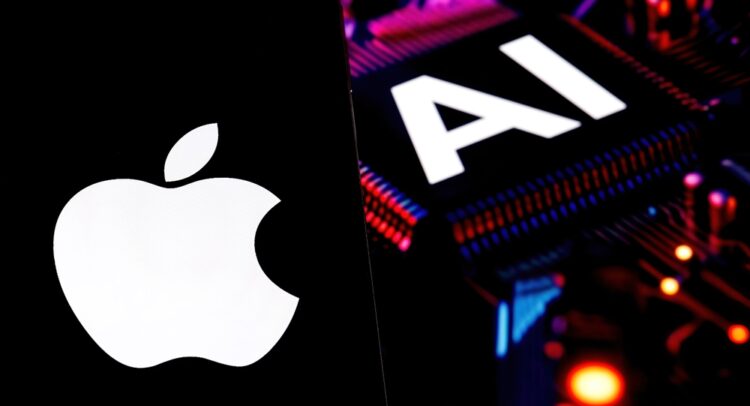Apple (AAPL) is having a tough 2025, and AI is at the center of it. According to a detailed report by Bloomberg’s Mark Gurman, Apple’s grand plans to lead in artificial intelligence are faltering. Years after poaching Google’s (GOOG) (GOOGL) AI chief, John Giannandrea, Apple is still far behind rivals like Microsoft (MSFT), Meta (META), and OpenAI. Siri — once hailed as the future of how we interact with technology — has become the poster child for delays, bugs, and broken promises.
Confident Investing Starts Here:
- Easily unpack a company's performance with TipRanks' new KPI Data for smart investment decisions
- Receive undervalued, market resilient stocks right to your inbox with TipRanks' Smart Value Newsletter
Last year, Apple previewed a new AI-powered Siri with bold claims: it could read your emails, access your calendar, and help manage your digital life without lifting a finger. However, when executives like Craig Federighi tested it earlier this year, key features simply didn’t work. Some weren’t even close. Apple quietly delayed the upgrade, first to May, and then indefinitely. Ads promoting those features were pulled. Internally, morale tanked. “Hundreds of bugs” still plague the software, one engineer told Bloomberg.
And Siri’s not the only headache.

Lawsuits, Tariffs, and a Shaky Year
Siri has also cost Apple real money. In early 2025, the company settled two separate lawsuits over alleged privacy violations, agreeing to pay $95 million to users who claimed Siri recorded conversations without consent.
Meanwhile, Donald Trump’s return to the White House has brought tariffs back into play. Trump’s new round of import taxes on Chinese-made electronics could hit Apple hard. Apple has already started to relocate its manufacturing plants to India. Still, Trump is not impressed, saying, “He’s (Tim Cook) going to India to build plants… That’s fine for India, but you’re not selling those phones here without tariffs.”
However, Apple is planning to spend $500 billion in the U.S. over the next four years, with a new server plant in Houston, a supplier training center in Michigan, and deeper relationships with American manufacturers. None of that includes iPhone production—and that’s what Trump wants front and center.
AI Was Supposed to Be Apple’s Next Big Thing
Underneath its AI woes, a glaring irony lies: Apple has the hardware, the chips, and over 2 billion active devices around the world, a massive edge over competitors. However, unlike Microsoft or Google, Apple didn’t invest early in the large language models (LLMs) that power today’s smart assistants. It bought fewer GPUs, hired fewer researchers, and placed tighter restrictions on the data its teams could use. Now, Apple must lean on OpenAI’s ChatGPT to fill the AI gap, with Siri’s long-awaited upgrades not landing until late 2025, or even 2026.
Internally, executives are already separating “Apple Intelligence” branding from Siri, in a bid to protect its broader AI messaging. In other words, Siri’s reputation has become a liability.
What Investors Should Watch
Apple’s stock is still supported by strong cash flow, a sticky ecosystem, and reliable product upgrades. But Gurman’s report makes one thing clear: Apple missed the starting gun in the AI race.
With $20 billion a year at stake in its search deal with Google, rising pressure from chatbots, and a possible rethinking of how users search, type, and interact with their devices, Apple has no choice but to move faster. Until it does, investors should expect more questions than answers.
Is Apple Stock a Buy, Sell, or Hold?
Turning to Wall Street, Apple is considered a Moderate Buy, based on 35 analysts’ ratings. The average price target for AAPL stock is $228.22, suggesting a 16.87% upside.

Looking for a trading platform? Check out TipRanks' Best Online Brokers guide, and find the ideal broker for your trades.
Report an Issue









